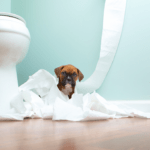Table of Contents
Starting obedience training early is essential for raising a well-behaved and happy puppy. Proper training helps establish a strong bond between you and your puppy, and sets the foundation for a lifetime of good behavior. In this guide, we explore the best obedience training for puppies with seven effective methods to ensure your pup grows into a well-mannered companion.

1. Positive Reinforcement: Best Obedience Training for Puppies
Positive reinforcement is one of the most effective methods for training puppies. This approach involves rewarding your puppy for good behavior with treats, praise, or playtime. The idea is to create a positive association with the desired behavior, encouraging your puppy to repeat it.
- Tip: Always reward your puppy immediately after they perform the desired behavior to reinforce the connection.
2. Clicker Training
Clicker training is a popular technique that uses a clicker device to mark the exact moment your puppy performs the desired behavior. The click sound is followed by a reward, helping your puppy understand what they did right.
- Tip: Start by associating the click sound with a treat, then use the clicker to mark good behaviors during training sessions.
3. Crate Training: Best Obedience Training for Puppies
Crate training provides your puppy with a safe and comfortable space of their own. It also helps with house training and preventing destructive behavior when you’re not around. Make the crate a positive place by using treats and toys.
- Tip: Gradually increase the amount of time your puppy spends in the crate, ensuring they are comfortable and relaxed.
4. Consistent Commands and Cues
Consistency is key in obedience training. Use the same commands and cues for specific behaviors, and ensure everyone in your household does the same. This helps your puppy understand what is expected of them.
- Tip: Choose simple, clear commands and stick to them. For example, use “sit” for sitting and “down” for lying down.
5. Socialization: Best Obedience Training for Puppies
Socialization is an essential part of obedience training. Expose your puppy to various environments, people, and other animals to help them become well-adjusted and confident. Socialization reduces fear and anxiety, which can lead to better behavior.
- Tip: Start socialization early and make it a positive experience with treats and praise.
6. Enroll in Puppy Training Classes
Enrolling in puppy training classes can provide structured training and professional guidance. These classes offer opportunities for socialization and help reinforce good behaviors. Look for classes that use positive reinforcement techniques.
- Tip: Research local trainers and read reviews to find a reputable class that suits your puppy’s needs.
7. Practice Patience and Consistency: Best Obedience Training for Puppies
Training a puppy takes time and patience. Be consistent with your training sessions and maintain a positive attitude. Remember, puppies are learning and will make mistakes. Stay patient and persistent.
- Tip: Keep training sessions short and fun to maintain your puppy’s interest and focus.
Conclusion: Best Obedience Training for Puppies
By following these best obedience training for puppies methods, you can help your puppy develop good behavior and become a well-adjusted adult dog. Positive reinforcement, consistency, and patience are key to successful training. Start early and stay committed to ensure your puppy grows into a happy and well-behaved companion. For more tips on puppy training and care, visit our website.
Frequently Asked Questions about Best Obedience Training for Puppies
When should I start obedience training for my puppy?
It’s best to start obedience training as soon as you bring your puppy home, typically around 8 weeks old. Early training helps establish good behaviors and prevents bad habits from forming.
How long should each training session last?
Keep training sessions short, around 5-10 minutes, especially for young puppies. This helps maintain their focus and prevents them from becoming overwhelmed or bored.
What if my puppy doesn’t respond to training?
If your puppy doesn’t respond to training, try different techniques or seek professional help. Be patient and consistent, and avoid punishment, as it can lead to fear and anxiety.
How can I reinforce good behavior outside of training sessions?
Reinforce good behavior throughout the day by using the same commands and rewarding your puppy for positive actions. Consistency is key to helping your puppy understand and remember the desired behaviors.
Are there any behaviors I should avoid reinforcing?
Avoid reinforcing unwanted behaviors such as jumping, biting, or barking for attention. Instead, redirect your puppy’s behavior to something positive and reward them for it.











